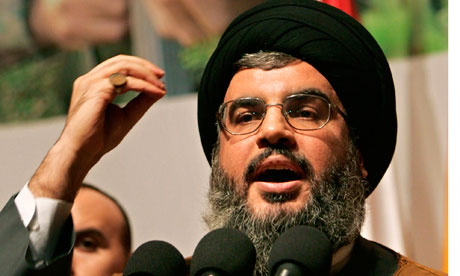
Why has the government fallen?
The opposition, which formed a power bloc in a unity government, has pulled out its 10 ministers, who comprise one third of the 30-person cabinet. They have been joined by an 11th minister, which means a threshold to collapse the government has now been reached. Constitutionally, the prime minister, Saad Hariri, can no longer lead the country. His 18-month old Government has now fallen.
Why did the opposition ministers pull out?
The dominant player in the opposition ranks, Hezbollah, has been extremely agitated by a UN tribunal the Hezbollah leader, Hassan Nasrallah, says will soon indict several members of the group for killing the former prime minister, Rafiq Hariri (Saad's father) in 2005. It claims the mooted charges are the product of a western plot to discredit it. If the indictments are proved, such a finding would disintegrate Hezbollah's claims to be a group that acts in Lebanon's interests. Co-operation between the government and opposition has been minimal ever since Nasrallah's MPs rejoined the cabinet, in May 2008, after a brief but bloody showdown that saw Hezbollah overrun Beirut, and Qatar broker a power-sharing deal that stoked tensions for a while.
Why now?
Two reasons: delivery of the indictments is imminent; and a key regional attempt, led by Saudi Arabia and Syria, to broker a compromise appears to have collapsed. Hariri, who has been under intense pressure from regional states to disavow the tribunal and stop using government funds to pay half the cost of running it, appears to have fallen in behind a US demand that the indictments be served and justice delivered. The opposition pullout was timed to coincide with Hariri's White House meeting with Obama.
Who are the key players?
At the local level, it is the wily and charismatic Nasrallah up against the billionaire scion, Hariri. Each is supported by a Christian warlord. In Nasrallah's camp is the former general and Syrian foe-turned-ally Michel Aoun; Hariri is backed by a key player from the civil war days, Samir Geagea. But the real actors in this drama are outside Lebanon's borders: Hezbollah is strongly backed by Iran and Syria; Hariri is heavily supported by Saudi Arabia, Turkey, the US and France. Lebanon's latest crisis, like all those before it, is very much a product of broader agendas. The wild card is Israel, which is rattled by the rising tensions over its northern fence and fearful of an Iranian powerplay. In any future conflict between Iran and Israel, Lebanon will almost certainly be a key battleground.
Can Lebanon ever find stability?
The Palestinians used to say Lebanon was a garden without a fence. And despite attempts at nation-building, and flag-waving demonstrations that were hailed as game-changers, nothing revolutionary has happened in the so-called Paris of the Levant; and, probably, it never will. The country is comprised of 18 different religious groups. Its politics are confessional, and appointments are divided up according to sectarian quotas. Worse, though, all key regional players use Lebanon as a proxy arena for their own agendas. It remains a mess.
What happens now?
Hezbollah will try to form a new government that will enable it to veto continuing funding of the UN tribunal and to invalidate the tribunal's findings. Hariri is flying back to Beirut, via Paris, to pick up the pieces. The regional players will make new efforts to quell the crisis, knowing full well that sectarian sparks could easily ignite turmoil within their borders. And everyone will hold their breath.

No hay comentarios:
Publicar un comentario